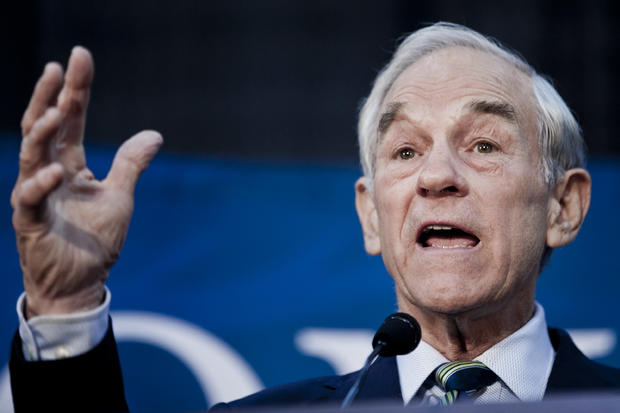In pursuit of delegates, Ron Paul comes up short
(CBS News) After threatening for months to cause trouble for Mitt Romney at the Republican National Convention, Ron Paul on Saturday came up short in his attempt to win a majority of GOP state convention delegates in Nebraska, marking an effective end to the candidate's prolonged, long-shot bid for the presidency.
Paul, a Texas congressman first elected in 1976, won just 2 of the Nebraska GOP's 35 national convention delegates last weekend, while Mitt Romney, the GOP's presumptive nominee, won the remaining 33 delegates.
"Ron Paul supporting delegates were there; we were just out numbered," said Laura Ebke, a Nebraska member of the Republican Liberty Caucus, which supported Paul, told CBS News.
In May, the Paul campaign announced that it would no longer be actively campaigningin GOP presidential primaries, but that it would not formally suspend his campaign. Instead, the candidate's organization said it would continue to accumulate delegates to send to the Republican National Convention.
Paul was banking on making use of a little-known Republican rule that would have allowed him to get on the Republican nominating ballot had he won a majority of delegates in at least five states.
As of now, Paul has a majority of delegates in only three states: Iowa, Maine and Minnesota. Some have cited Louisiana as a fourth delegate victory for the Paul campaign, but the Louisiana Republican Party tells CBS News their delegate allocation is currently in dispute.
Even if he ends up victorious in Louisiana, Nebraska marked Paul's last real opportunity to win delegates in a fifth state and get his name on the ballot this August.
Had he made the ballot, many expected that Paul would have received a prominent speaking slot at the Tampa convention, thus lending increased prominence to the libertarian cause -- which Paul's campaign has long cited as a primary cause for his presidential bid. Sean Spicer, of the Republican National Committee, tells CBS News, however, that a plum time slot was by no means a guarantee for Paul even had he succeeded.
He could also have caused Romney a headache in the official nominating process -- ostensibly a formality in this election, as Romney has clinched the necessary 1,144 votes -- by organizing a charge to have Romney delegates switch their support to the Texas congressman.
For now, however, Paul's senior campaign adviser Doug Wead says that Paul's fate with regard to the convention this summer is largely in Romney's hands.
"Really what Dr. Paul does and what his role is will be decided in the Romney camp," Wead told CBS News, of whether or not Paul makes an appearance in Tampa. "There are Romney staffers that reach out to us that tell us that they want our voters and supporters in the general election," as well as, he said, those who think a Paul endorsement could be a liability.
The Romney campaign did not immediately respond to a request for comment regarding Paul's possible role in Tampa this summer.
But Wead says Paul himself doesn't much care either way.
"What could we possibly want? Nothing. This is really an internal debate in the Romney campaign," he said. "How far do we go to try to bring these people in and do we need to?"
"His campaign was a message campaign and a campaign to affect change," Wead added. Citing increased interest among Americans in issues surrounding the Federal Reserve, he argued that Paul's campaign was ultimately successful: "I think he's very pleased by that and tickled by that."
